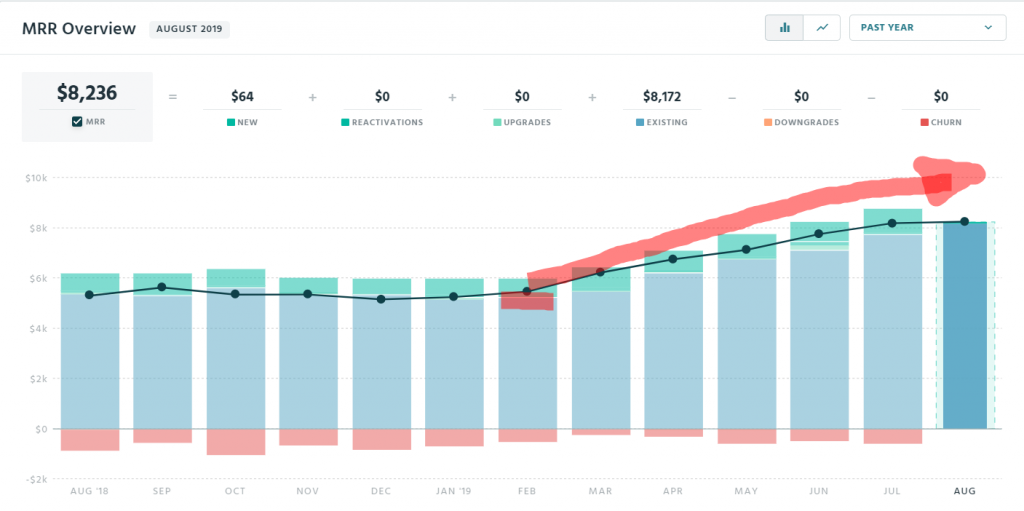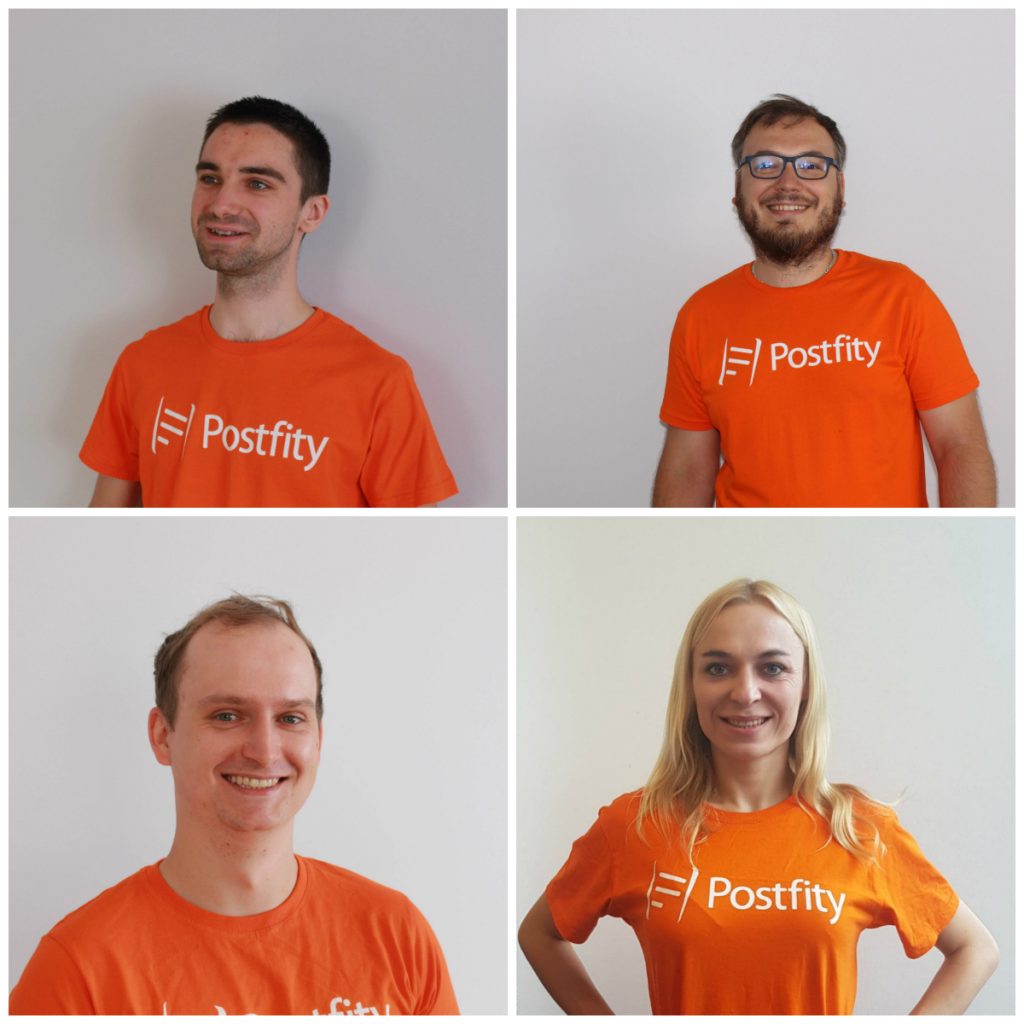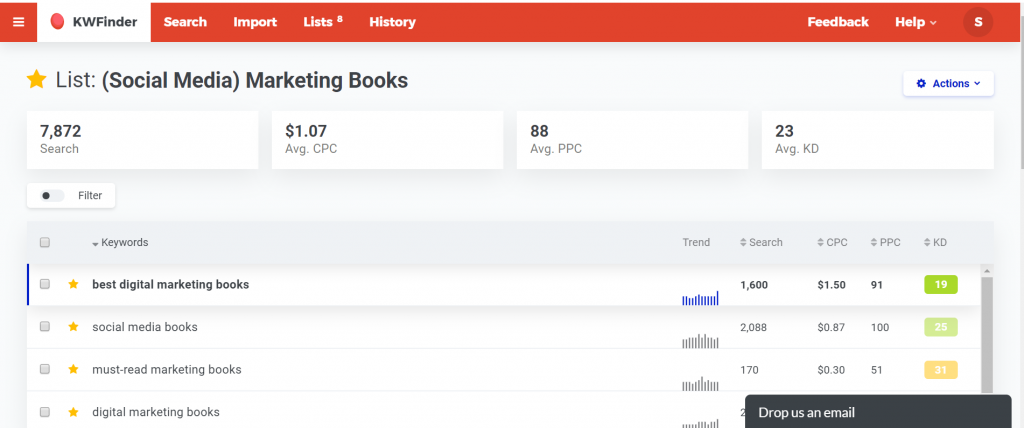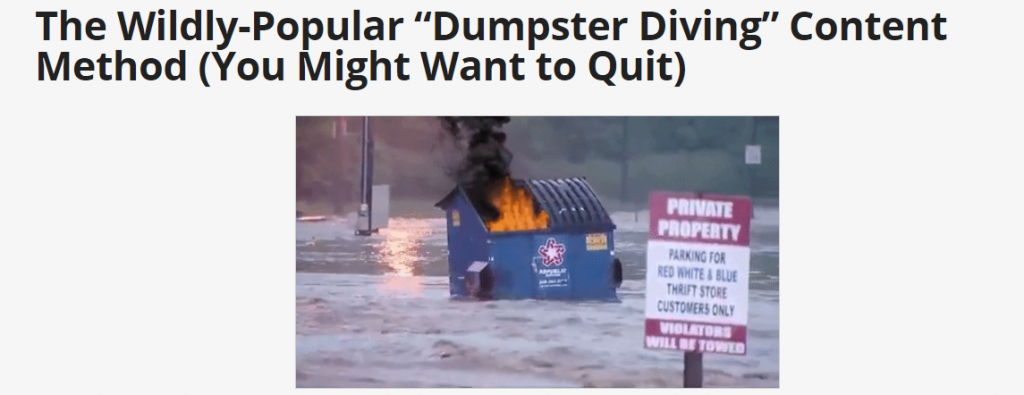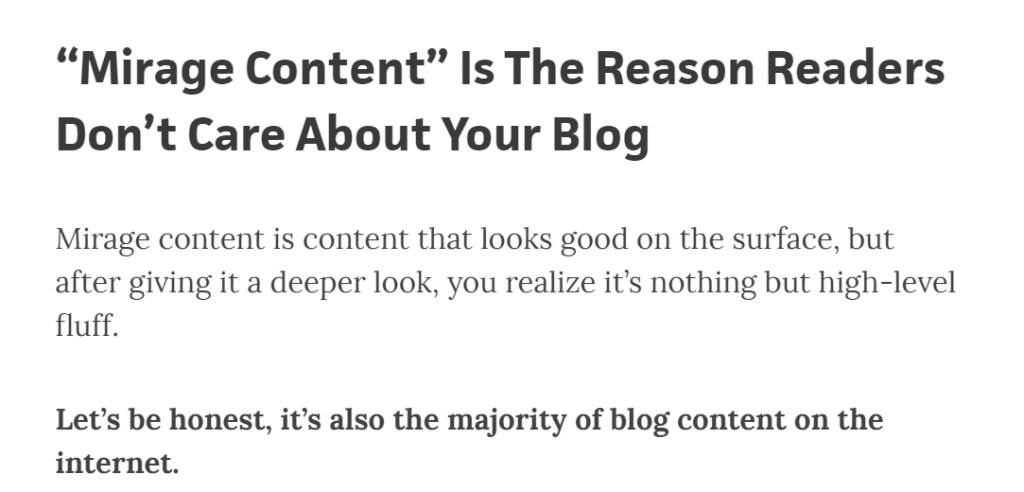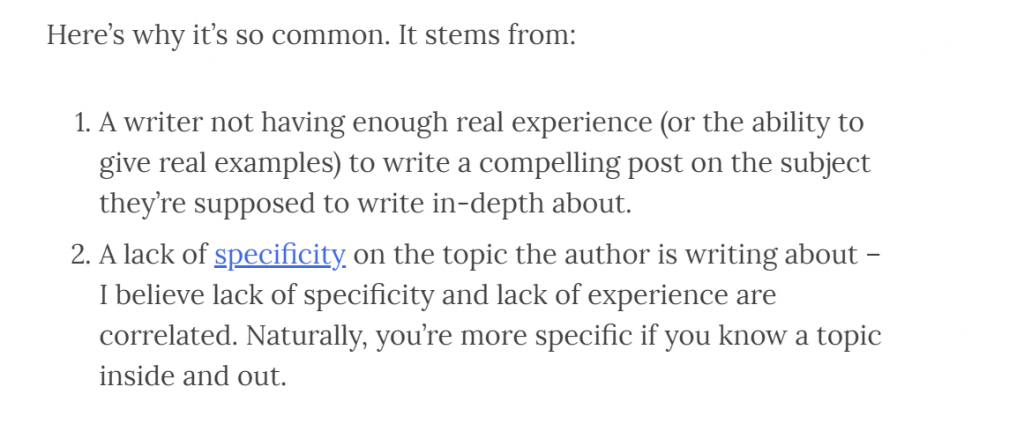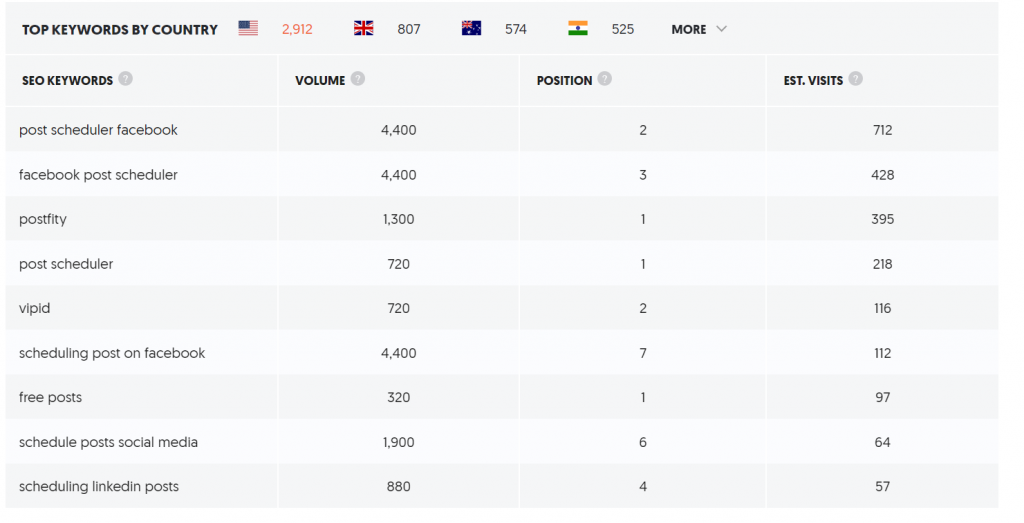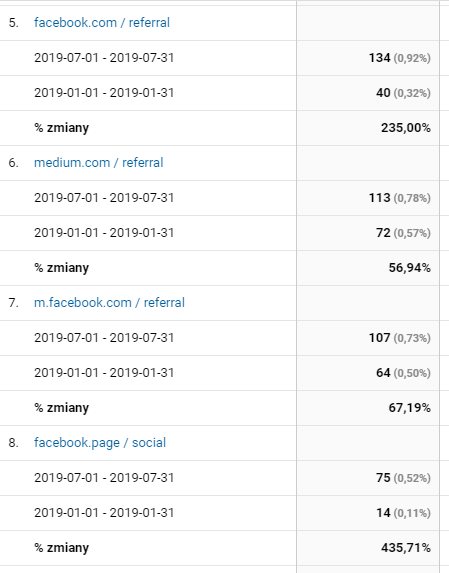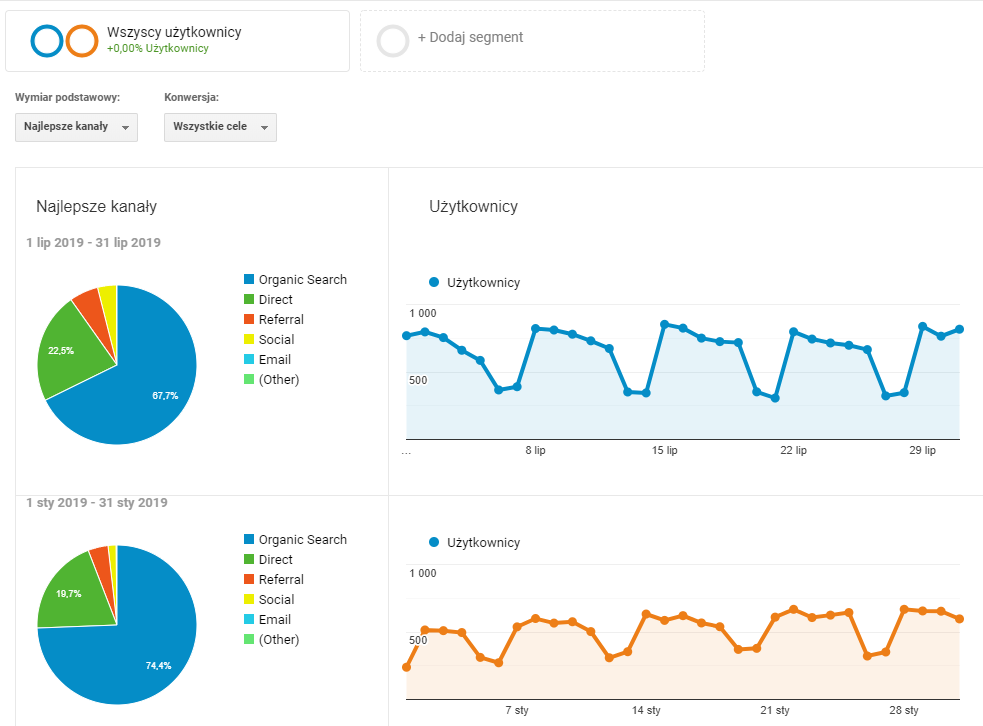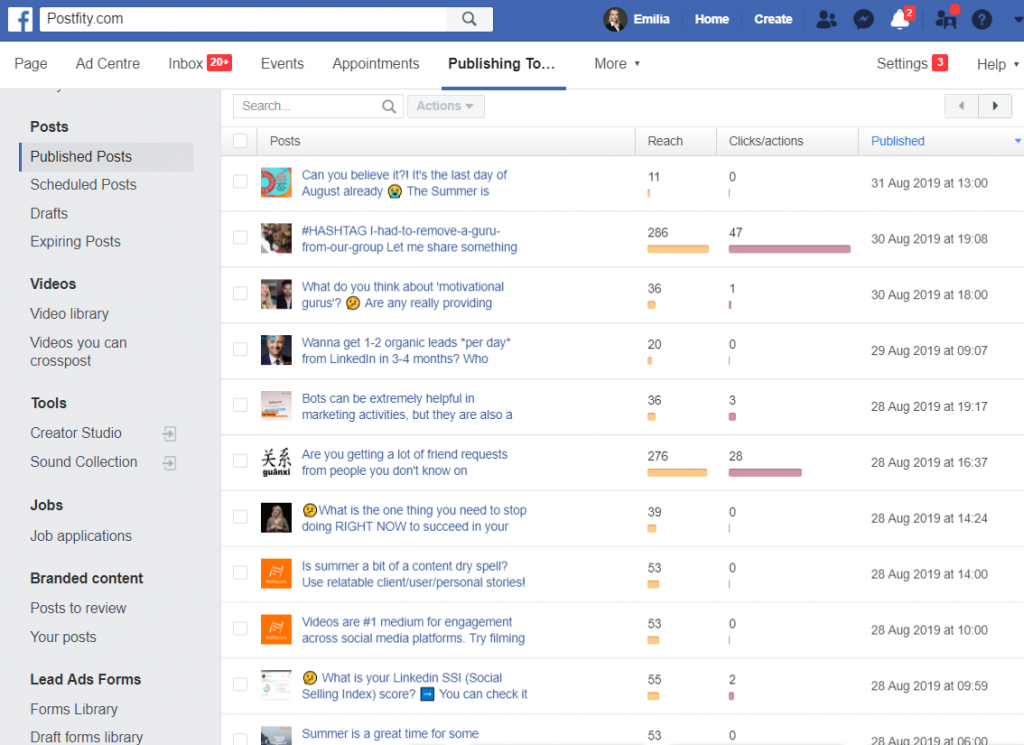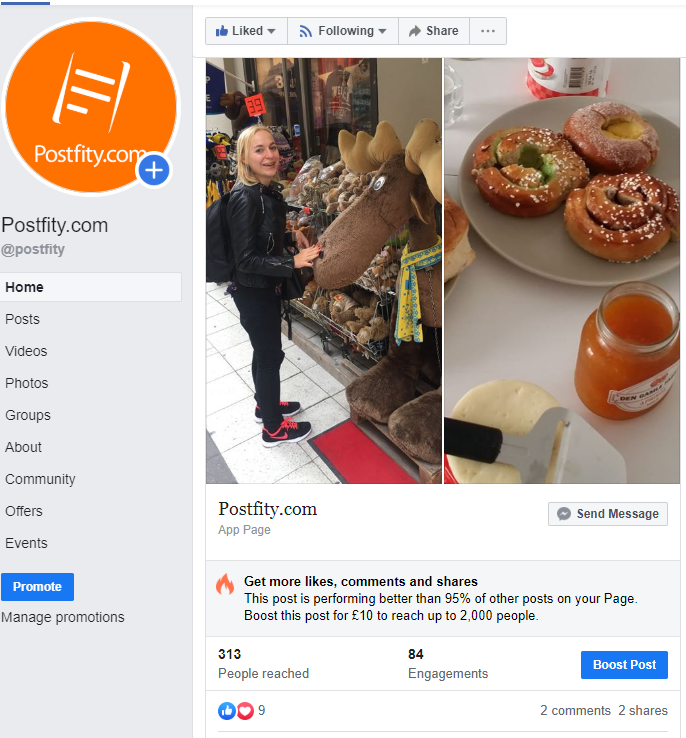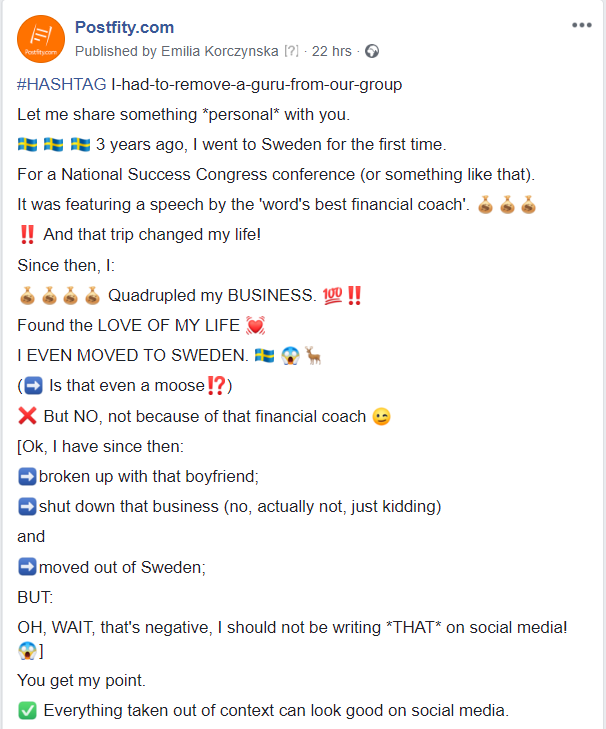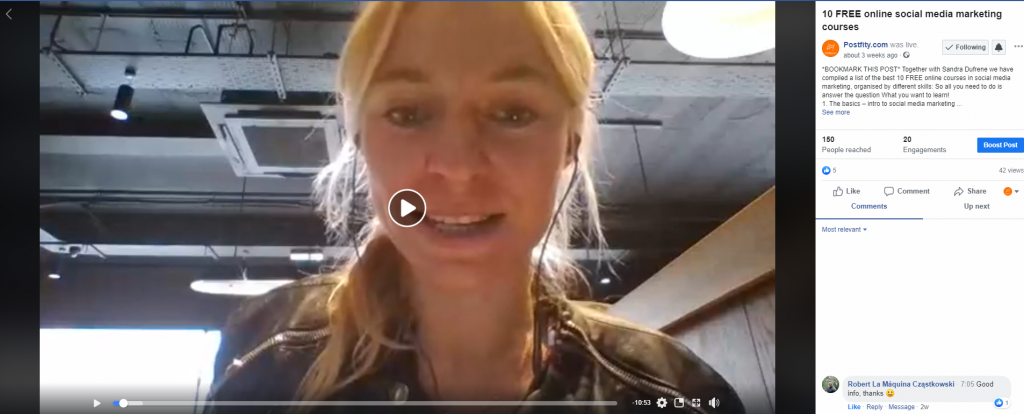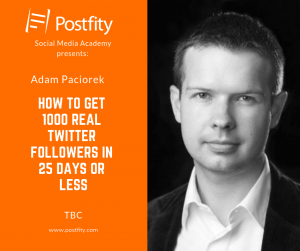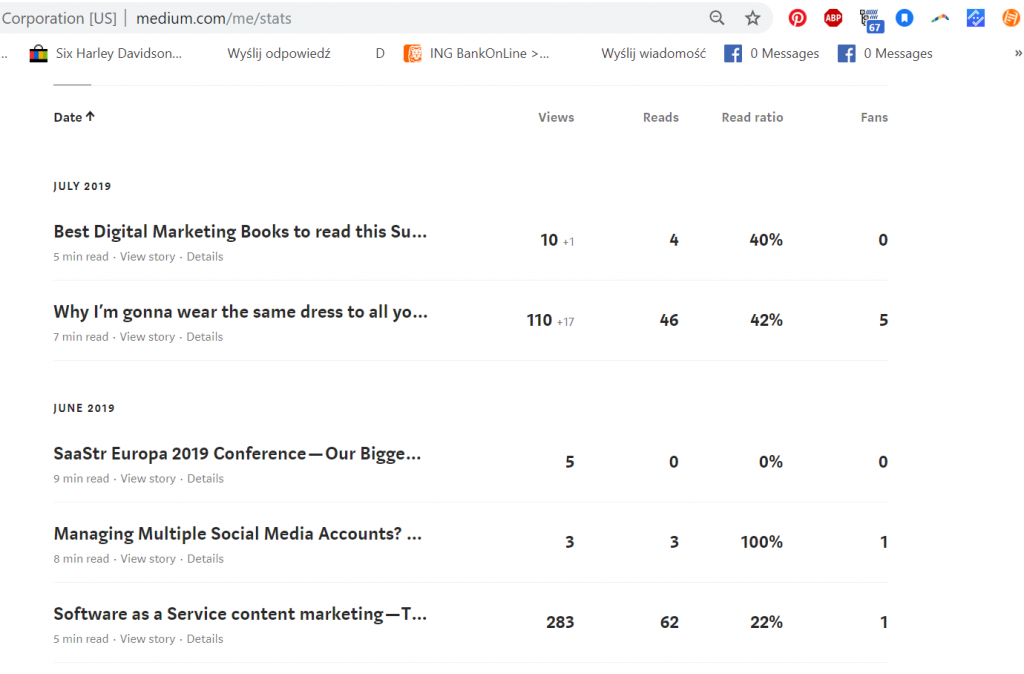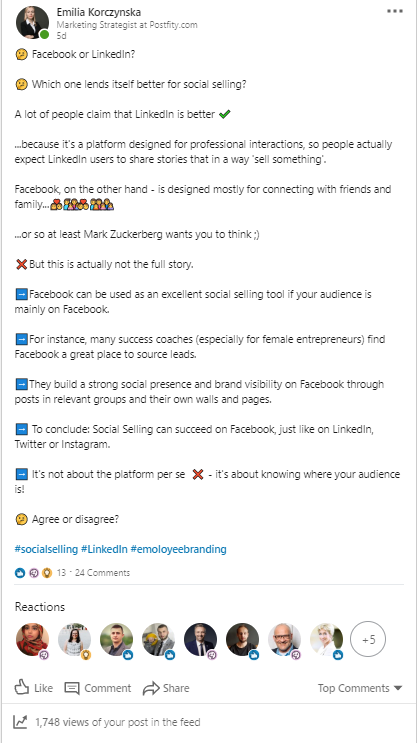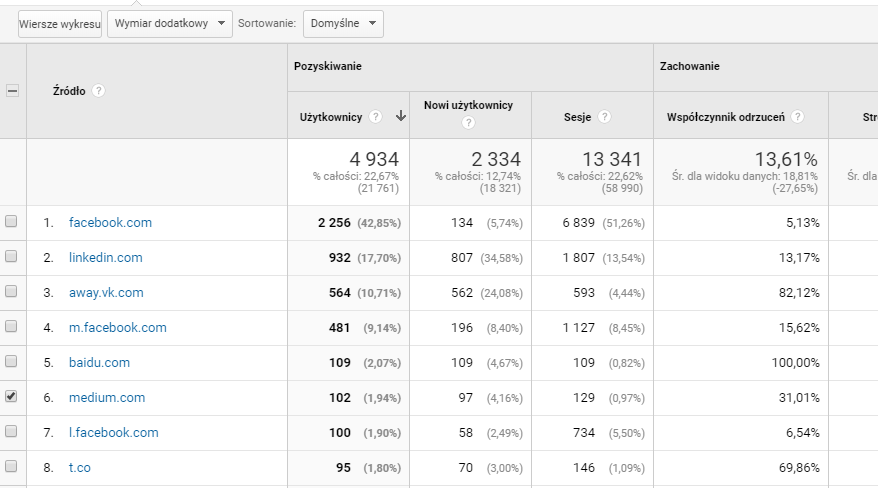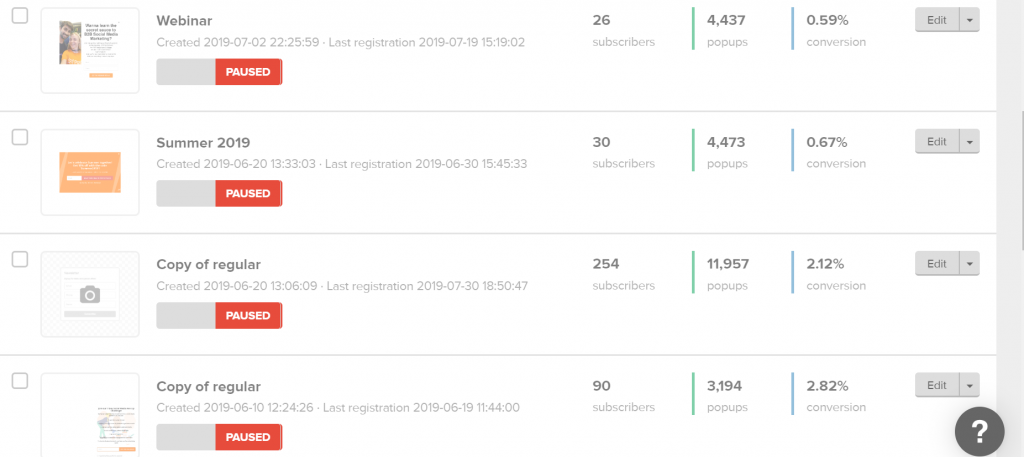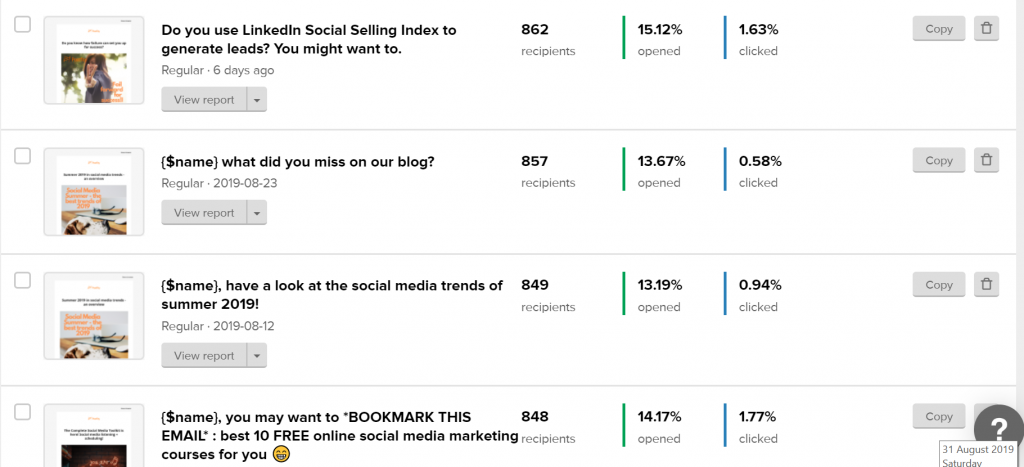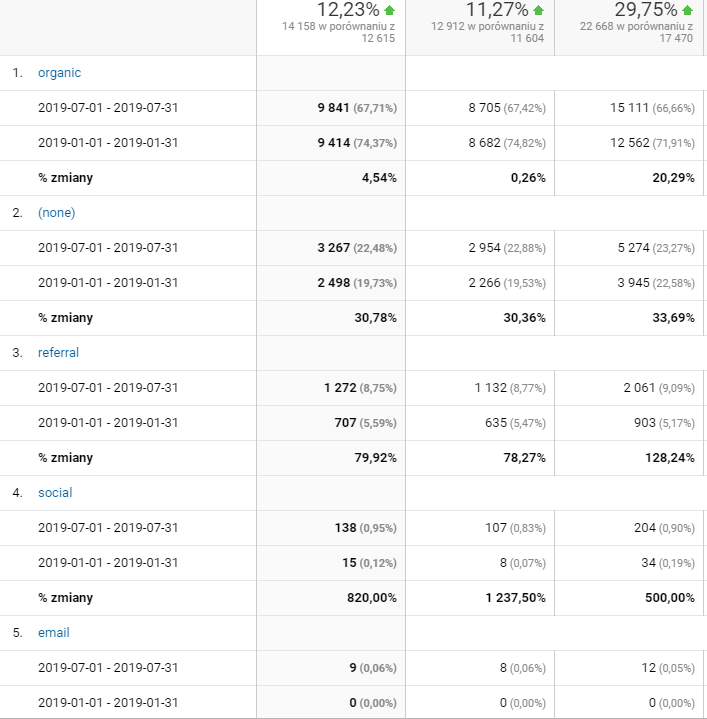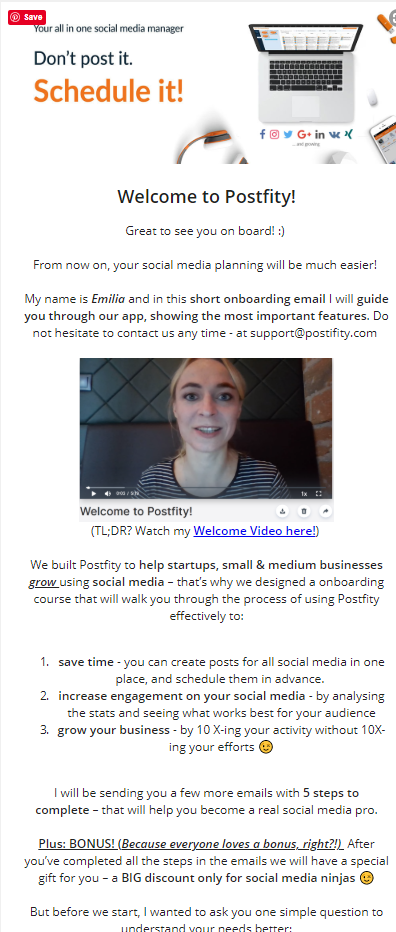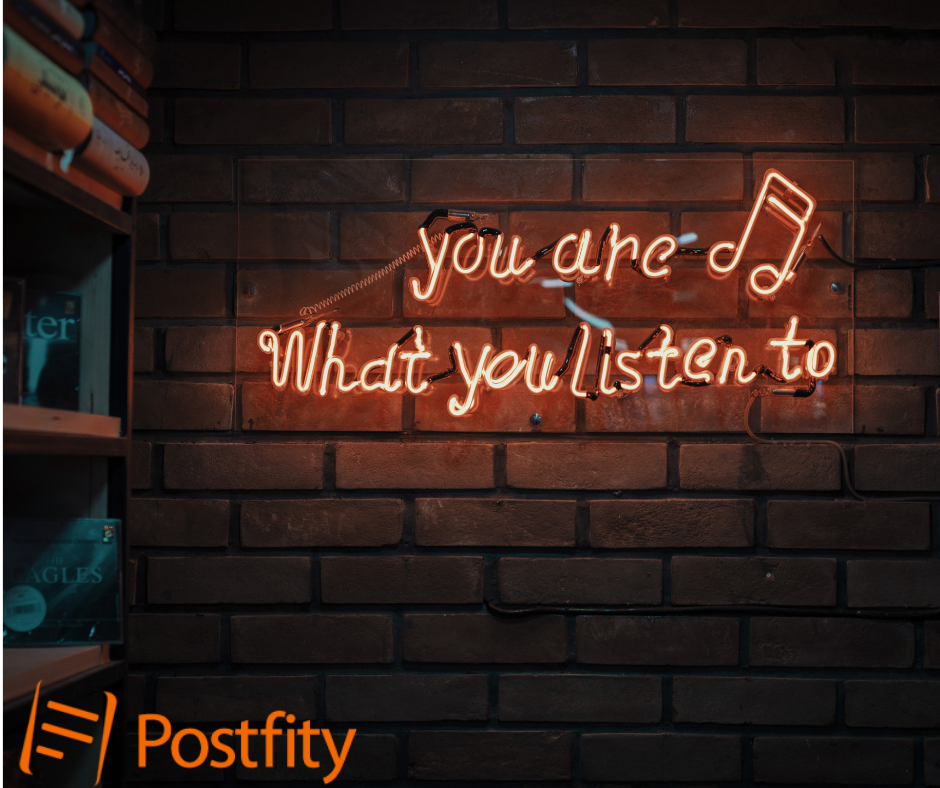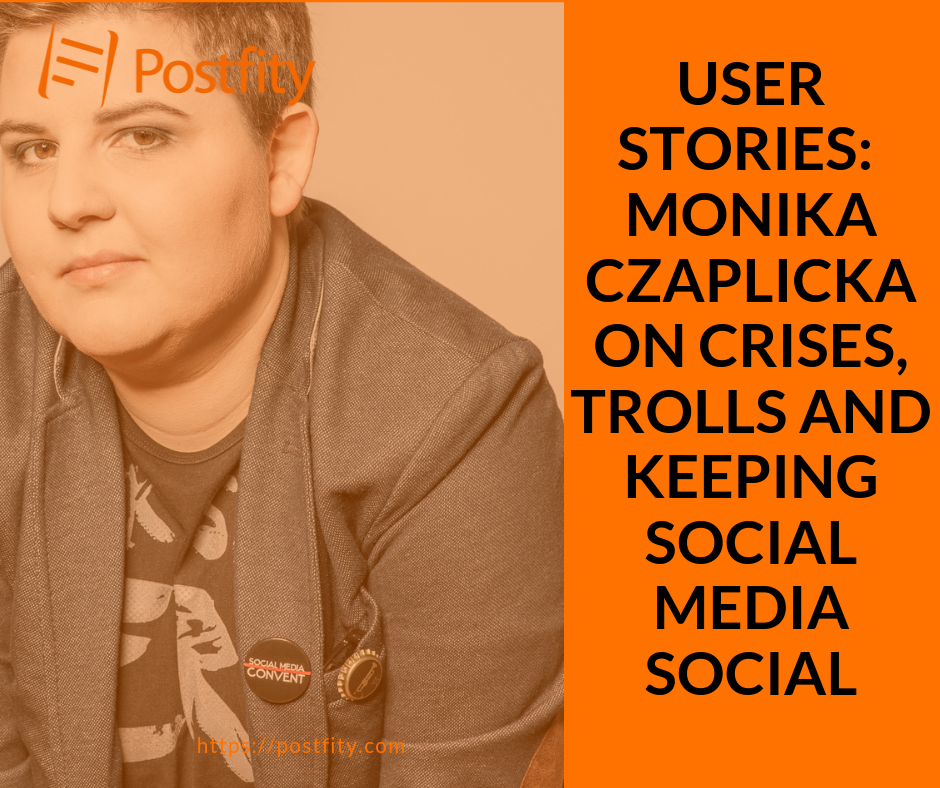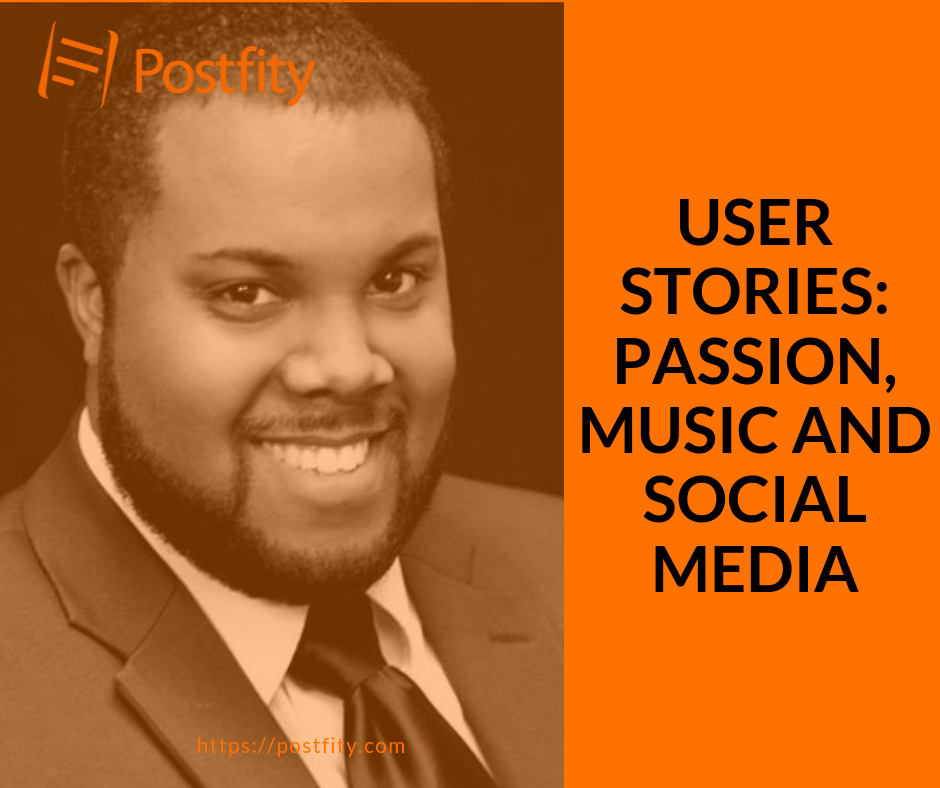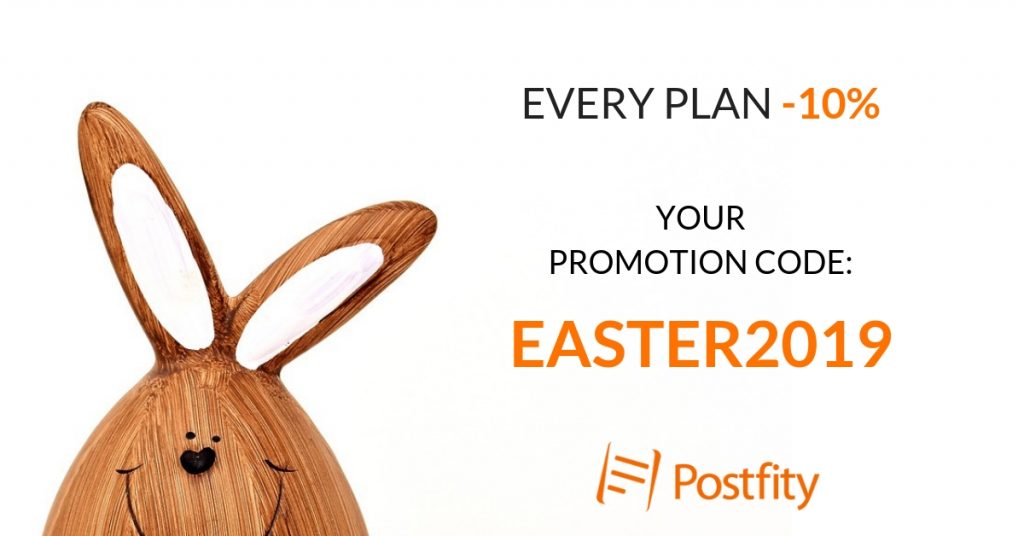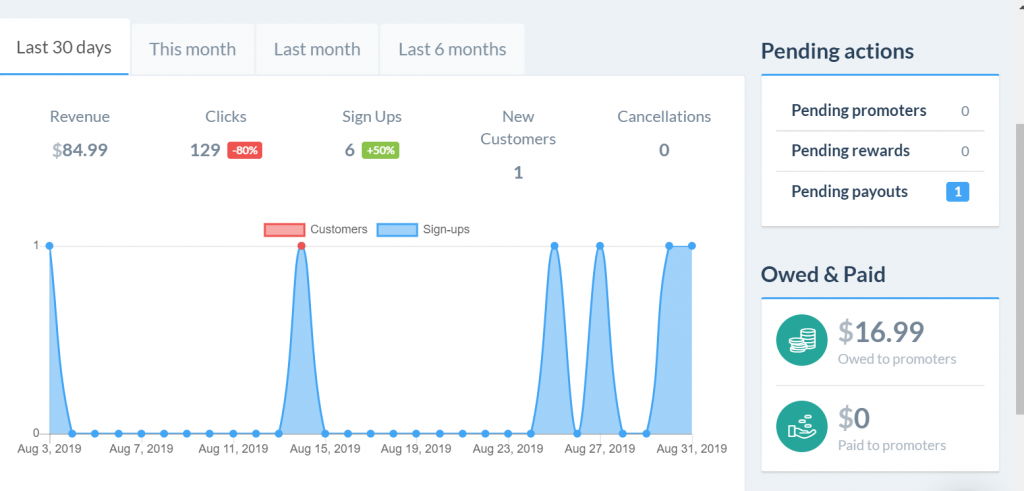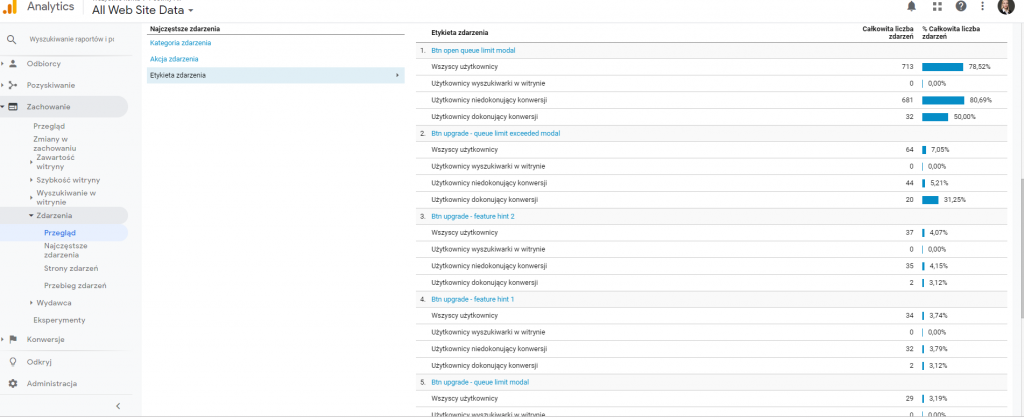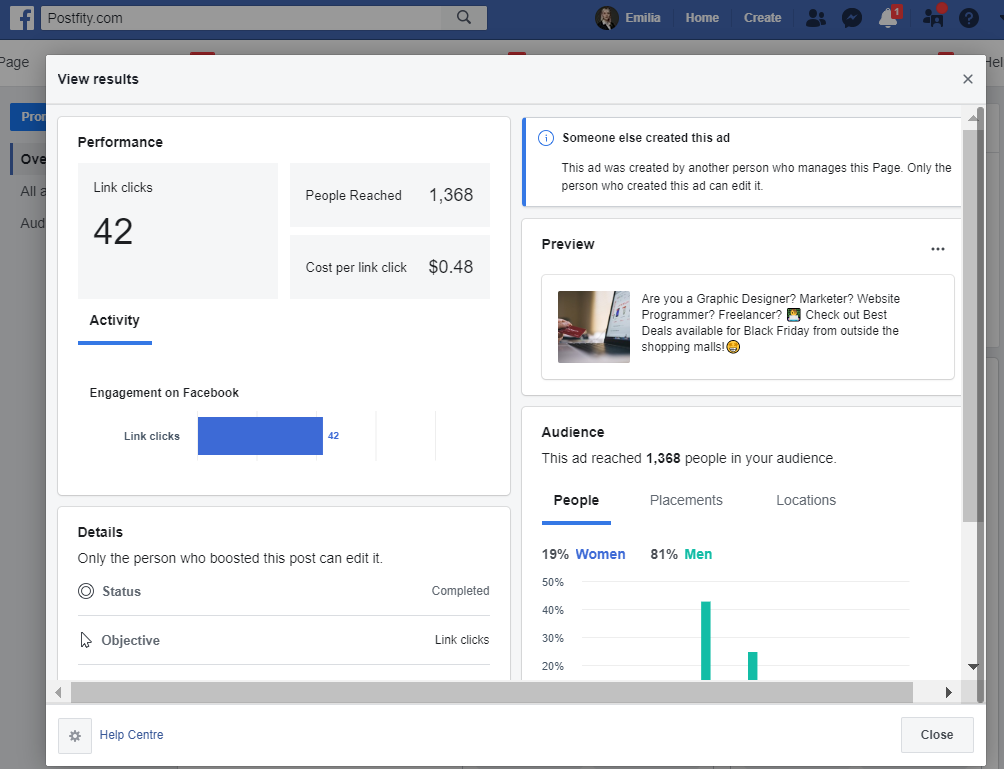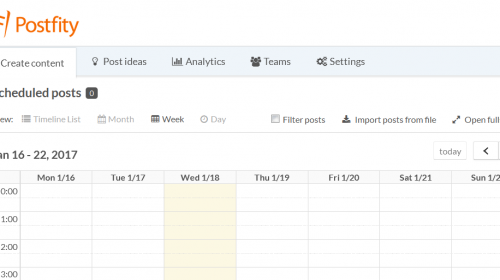Can you grow your Monthly Recurring Revenue (MRR) by over 70% in just over 6 months after a year of stagnation (0.6% growth)?
It turns out you can 😉
Postfity has gone a long way since I joined in February this year. We introduced a lot of changes into our marketing.
As a result, the MRR jumped from $ 5,232 to $ 8,943 in just 7 months.
That’s a 71% increase.
In this post, we are going to present all the things we did between January and July.
We are also going to analyse their impact on our website traffic, conversions and MRR.
Finally, we will draw some conclusions about what has worked, and what not, so you can implement some of our learnings in your business 😉
A few facts about our situation before we start:
- Postfity is a social media scheduling app.
- It’s a fully-bootstrapped startup. This means: we don’t have any funding, we are a small team of 4 (3 developers – the original founders + 2 freelancers doing some content marketing when I joined)
- Nobody in the team works on Postfity full-time – we all have ‘day jobs’ and/or other commitments;
- I joined Postfity as a part-time growth hacker/marketer in February 2019;
- Biggest Challenges: our user base (and audience) is very, very heterogenous…basically, all kinds of small businesses using mostly the free accounts, some SMEs using the professional account to manage a few brands + a few dozens small agencies that looked for cheaper alternatives to Buffer/Hootsuite (we are 3-6 x cheaper than our competitors!)
- Marketing efforts so far:
- 47 blog posts that were not really optimised for SEO (although some of them did rank anyway, like this one about the 4 Top Tools for Creating Video Intros Online), and some of them did not have any monetisation logic (AKA: did not really link to our product…like, the post about Video intros…we don’t do video intros, and we don’t even support video at the moment ???? )
- Social Media: Facebook (2300 followers), LinkedIn (72 followers), Twitter (16.5 K followers!), Instagram (218 followers)
- Some activity on Quora and Reddit…
- Onboarding emails, occasional mailing with promotions
What we did to achieve this growth:
#1) More & better blog content
What does it mean more and better?
First of all, we started doing content marketing on our blog strategically.
Strategically, that means we:
- decided on what kind of audience we want to target (VAs, startups, small businesses)
- divided our audience into groups and created campaigns for each group with relevant topics
- Each month and week we had a ‘theme’ (e.g. March – Social Media Academy with Postfity; May – Marketing for Startups; June – Marketing for SaaS businesses; July-August: Summer School, September – Back to School (Teachers, Online Schools, VAs), which was consistent in all our communication – blog posts, social media posts, lives, newsletters, pop-ups etc.
- did keyword research using KWfinder to find relevant keywords for our blog post topics:
- We optimised our blog posts for SEO – both existing and the ones we were only writing. This involved:
- Our strategy was to target low-difficulty keywords, also with low search volume; I learnt from my work for private clients via my content agency that this strategy can really work: even if the volume of searches for a particular keyword may seem low (think: under 100 per month), the traffic really adds up over time if you rank on #1 in Google for that ‘orphan keyword’ nobody wants;
More blog posts, more consistently
I was striving to publish at least 1-2 posts per week.
Results? Since February, we published 42 new blog posts – just on our blog – plus countless guest posts on other blogs + syndication platforms like Medium.com…
How was that even possible with such a small marketing team (well, a team of…1 ???? …plus a VA + a freelance Facebook ads marketer)?
- I’m a very prolific writer 😉
- Consistency is key. Set and keep your deadlines. Treat your agreement with your audience (I will publish a new blog post every Monday!) as a legally binding agreement. Implement financial penalties for not keeping it if necessary 😉
- Accept high-quality guest posts. Make your quality guidelines clear!
- Outsource some posts (or at least drafting) to your VA
Better: In-depth, SEO-optimised, original posts based on Interviews with experts, users, or real Case Studies
What was really important to me, was that we improved the quality of our posts so they could really resonate with our audience:
-
Original content: no dumpster-diving, mirage content:
Basically, dumpster-diving is a technique of creating content that means:
- googling a few keywords related to the topic
- reading a few popular posts on the topic
- collating information, re-shuffling and re-writing the content of these posts into a new post
This technique usually results in content that:
- is not original, says what everyone has said already and what everyone knows
- lacks specificity, is vague, or sounds like the author doesn’t know what they are talking about…(because it’s most often true).
- is boring AF. (Because the author is soooo boooored when writing it.)
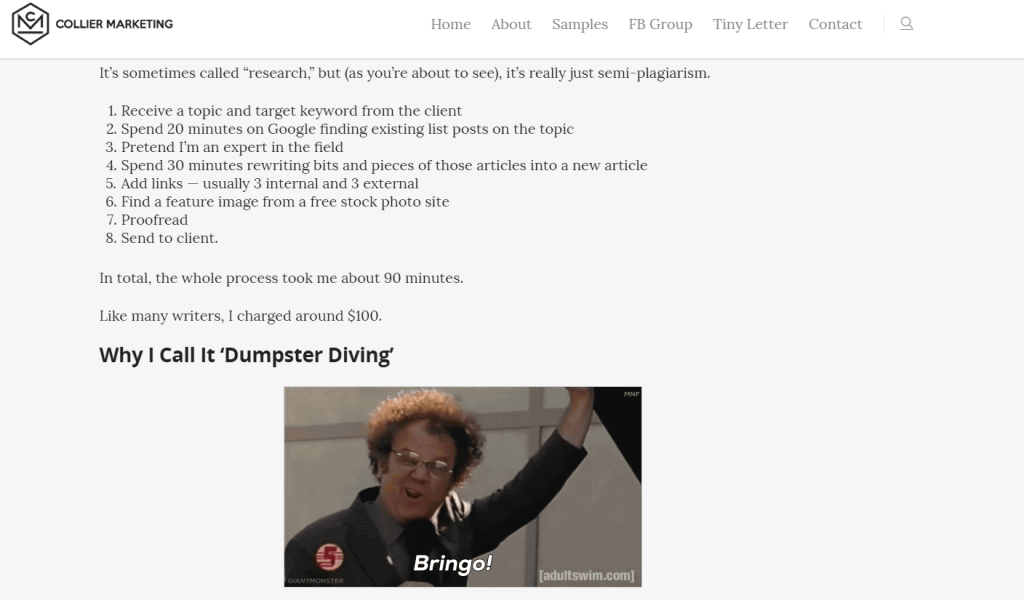
Instead, we conducted original interviews with experts, users and guests and used our own original case studies as much as possible;
All this has contributed to a growth in organic traffic:
- Out of 25 most popular pages on our domain in July, 9 are new blog posts
- Our organic traffic in July (blue) was much higher from what it was in January (orange):
- Four of the new blog posts (How to save $493 per month on marketing in a startup, How to do B2B Social Media Marketing in 2019, Marketing in China, and Best Marketing Tools for Startups) are in the top-5 most popular pages on our domain according to BuzzSumo:
We have also ranked for some pretty good keywords according to Ubersuggest (data for US, where most our users are):
#2) 10-x-ing our social media activity
Along with 10-x-ing our content on our blog, we dramatically increased the volume, regularity and consistency of posts on social media:
- Instead of posting irregularly a few times per month…
- We post 5 times per day (!) across all our platforms: https://www.facebook.com/postfity/, Instagram, Twitter, LinkedIn and Vkontakte. Of course, posting that much would not be possible without a social media scheduler
????
- We also set up a Facebook group called Social Media Marketing Academy with Postfity, which has around 500 members now
Results: 820 % in organic traffic from Social Media on our Website:
Especially from Facebook:
Even though it’s still an insignificant source of traffic to our website, it grew more than 3 times:
This, however, still translates into over 14% of our conversions coming from Facebook: 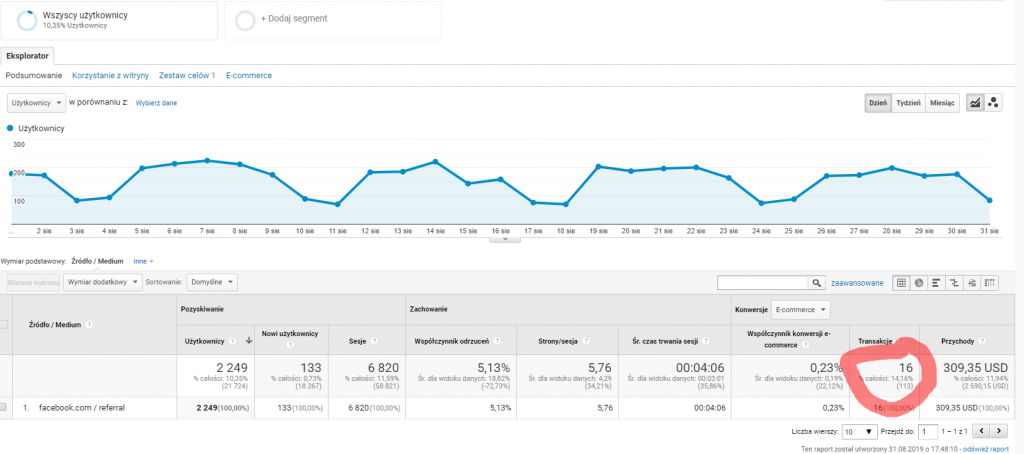
What we posted and what has worked in terms of our social media posting?
Unfortunately, you can see that the figures are still quite low in absolute numbers (138 visits compared to 15 is a massive progress, but it’s still too few to my liking 😉 )
We have been posting various posts, mostly related to:
- our blog post topics,
- company announcements
- and special promos.
The engagement on our Facebook page remained quite low though:
We only recently realised that what our audience wants most is posts that are:
- long
- authentic
- presenting some educational value, but written in a simple language
- based on storytelling
- full of emojis ????
- with a ‘personal touch‘ such as a photo of one of the team members…
Read more here: https://www.facebook.com/postfity/posts/1187917928078060?__tn__=K-R
These posts have consistently done well in our recent experiments.
#3 Facebook Lives
Another new tactic we have introduced, that had a positive impact on our engagement, was Facebook Lives:
Unsurprisingly, Videos were the most engaging type of content on Facebook (true to form – video is supposed to be the format to post on social media in 2019!)
What kind of content did we cover in our videos?
- Short (3-4 minute) synopsis of our blog posts
- Power user tips
- Guest Lives from Experts on different topics:
- Announcements of upcoming events such as Webinars, Guest Lives, or Special Promotions
#4) Blog post Syndication (LinkedIn, Medium.com)
We also started syndicating our posts to Medium.com and on LinkedIn (articles, longer posts on my personal profile):
This translates into around 100 website (+ app) visitors per month from Medium and around 900-1000 from LinkedIn:
#5) Email marketing
As I mentioned at the beginning, our email marketing efforts before February were very, very modest.
While a lot remains to be done in this respect still, we have:
- Implemented on-site popups using MailerLite encouraging our website visitors to sign up for our newsletter;
- Changed them quite often depending on the occasion;
- While our stats for sign-ups are not stunning as you can see below, this has still translated into 862 subscribers in 5 months (since implementation in March)
We are sending the subscribers (leads) weekly emails based on the weekly theme (blog post).
Because MailerLite is a really easy to use tool, we outsource this mainly to our Virtual Assitant:
The results so far are somewhat disappointing – only…9 website visitors from email (which makes us think we need to work on our email campaigns…)
We have not been that good with sending mailings to our existing users, mainly due to the fact that we have a rather clunky open-source tool for our large database of contacts (yeah, we’ve been a bit cheap in that respect ????).
#6) Changing our onboarding campaign
On top of introducing email marketing, I decided to tweak our onboarding campain to:
- Make it more personal and personable – the call to Action in the first email subject line is…to contact me telling me why you’ve signed up 😉 lots of people actually have contacted me, and we have not only exchanged a few nice emails, but also did blog post swaps (= backlinks ????)
- I included a welcome video summarising all the basic functionalities of our tool
- We made sure all the onboarding emails speak the language of benefits (rather than just talking about features and functionalities)
- I gave users tasks to complete in each email to a) increase engagement with the tool ASAP (a key to retention ????) b) boost their sense of achievement from interacting with the app often (a key to making it more ‘sticky’)
- The last email has a subject line ‘Congratulations on Graduating from Postfity University!’ and is followed by a drip campaign that emphasized the benefits of paid versions.
#7) Marketing Joint Ventures
Over the course of the last 6 months, we did a few ‘marketing joint ventures’ that involved one or more of the following:
- Guest post swaps e.g. with Userpilot.com, Get a Newsletter, Szczesliwawbiznesie, Sentione
- Guest lives/ joint webinars in our respective Facebook groups / on Facebook Pages
- Mailing swaps
- Bundling our tools together and selling both at discount price
The marketing joint venture partners had to be:
- complementary tools/ products
- have English-language communication channels
- have a user-base and target audience that overlaps with our userbase/ target audience
RESULTS?
While the joint ventures did not directly impact sales (at least not much), it’s hard to conclusively measure the results as the backlinks and articles have an impact on our SEO and referral traffic.
#8) User Stories
Another marketing tactic we introduced in the last 6 months were ‘user stories’ – interviews with our users in the form of shorter blog posts.
The interviews discussed the user’s business, how they use social media, and how Postfity helped them achieve their business goals specifically (check out examples here and here)
Upsides?
Posts like these generally generate more engagement due the so-called ‘vanity metricks’ – people tend to share posts about them and their friends/family a lot more than ‘generic advice’/ case studies about other people.
#9) Time-sensitive promotions
This year, we introduced several time-sensitive promos which in total accounted for about 10% of all new sales volumes.
#10) Affiliate Programme
The affiliate programme was both a hit and a miss for us so far. We used First Promoter which had in-built emails guiding the promoters through the programme.
I have modified the emails to make them more personal and give the affiliates as many tips on promoting our tool as possible, plus assets such as logos, social media graphics pack etc.
I included videos and even got in touch with a few promoters personally, and even wrote blog posts for a few of them.
Still – since we did not have enough time to really activate and engage the affiliates, it seems, at least from the results they are getting (2 sales so far, after 4 months of the programme).
And yet, when we look at Google Analytics, we can see that the programme was not without impact:
1000 new website visitors per month from the affiliate links will definitely have an impact on brand awareness, new sign-ups and possibly also – indirectly – sales in the future.
#11) In-app pop-ups/ notifications
Since we have a large user base (100k users), we thought how we can convert those that are actively using the free version, but could upgrade to the paid one.
We created a series of pop-ups in the tool for the free users, reminding them of various features available only in the paid plan, and alerting them about exceeding the free plan limits and needing to upgrade to get more of posts/ covers/ analytics.
In the first month, we had 56 conversions from that.
#12) Email outreach and guest posting
In the last 6 months, we have endeavoured to reach out to 10 blogs accepting guest posts per week. We have used Nightwath’s List of Marketing Blogs Accepting Guest posts.
We have been accepted by roughly 3 out of 10, and (providing we followed up…) published about 1-2 guest posts per month that way.
We have not seen much traffic from those guest posts, but we believe it was still good for the backlinks.
#13) Facebook Ads
Finally, we did some Facebook Ads campaign with the help of a Facebook Ads specialist.
This channel has not worked that well for us so far, and we have not invested a lot of effort/ money into it (yet).
What we succeeded at:
- Building Brand Awareness
- Engaging Our Users more – we now get a lot more emails, messages and comments from them
- Building relationships with other businesses
- Creating scalable processes for our social media marketing
What we are still working on:
- Consistency – posting the same kind of quality posts at regular times
- Following up – some guest posting opportunities have fallen through the cracks just because we didn’t have the capacity to follow all of them up
- Quality – making sure all our posts are both engaging and valuable
- Funnels – building
Conclusions?
#1 It’s OK to throw spaghetti on the wall if you measure what sticks
Actually, according to Gabriel Weinber, author of the book ‘Traction – How Startups in Any Field Can Achieve Explosive Growth’ – the only way to really discover what traction channels are best for your business is by relentlessly testing them.
That doesn’t mean that you should do a) everything at once b) keep doing the same things even if they are not working (seems obvious, but that’s what a lot of startups do anyway, sadly).
Test one traction channel at a time using various strategies, and measure results until you’ve discovered what works. Then, invest all your resources into scaling this channel.
#2 Process is key
Once you’ve discovered what works, it’s time you write down a consistent process of doing it that is scalable – aka – that makes you replaceable.
#3 Quality, Quantity and Consistency
What we also found is that the success on social media is a function of three factors: quality, quantity and consistency. It doesn’t matter how often you post if you’re posting ????. And it doesn’t matter how great your content is if you post only once in a blue moon, or so inconsistently your audience doesn’t know what to expect.
Hope our journey brings you some ideas and inspiration – see you in another 6 months 😉
